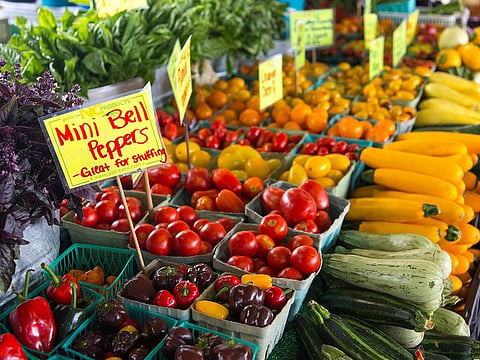Consumer price rises will need intervention by Gulf authorities
Pandemic has set off a price spiral and supply disruptions are not helping

After a pandemic, a major war or disaster, history shows there will be significant rises in commodity prices and which then sets up higher inflation. A sharp increase in commodity prices is noticeable with the ongoing recovery from the COVID-19 pandemic.
Countries that depend on imports will be the most affected by the price hikes. The pandemic has led to disruptions in supply chains and lower production within major sectors as a result of the significant decline in demand. The sharply reduced supply explains the ongoing rise in prices, which may continue for a longer time.
Totally unprepared
Data indicates that demand in global markets for various types of goods and services increased at the beginning of this year following the gradual resumption of activity after the lockdowns. This demand grew due to the accumulation of savings with consumers, resulting from the limited access to travel and shopping over the better part of 2020. This coincided with the inability or factories to quickly resume previous production levels.
One reason was the lack of sufficient supplies of basic commodities and the loss of jobs within the manufacturing sector. There are countries such as Japan and those in the European Union that depend on raw material imports, which resulted in unprecedented demand for shipping containers., Shipping companies, though, could not meet such a demand at the required speed, leading to fierce competition to book space aboard ships, which resulted in costs shooting up, even tripling in one year.
It is clear that the reasons for the vast rise in prices are due to the imbalance of the demand and supply equation. This may constitute a greater pressure on prices, and what makes things worse is that the levels to which prices will rise is an unknown. The Food and Agriculture Organization said last May that prices rose at the fastest monthly pace in a decade and with cereals, sugar and vegetable oils going up 32 per cent.
Too fast too soon
Yet, what matters to consumers here is to what extent prices will remain rising? There are two opinions prevailing among economists; the first lot expects prices will remain at high levels, while the other believes current inflation rates are a temporary phase linked to the imbalance between supply and demand.
In all cases, each country individually and the international community as a whole bear a great responsibility to limit successive price gains, as it would lead to a shortage in the supply of basic foodstuffs. Signs of famine have appeared in some areas of Asia and Africa, which requires rapid action.
In the region, despite the fact the Gulf countries enjoy high living standards, the unprecedented rise in prices will undoubtedly affect those in a low-income category. This requires urgent action, whether by supporting the most affected groups or activating consumer protection. It has been noticed that prices are rising in this part of the world at rates exceeding those in international markets.
In the meantime, let’s hope a balance will be restored in the markets to limit the rise in prices.
-- The writer is a specialist in energy and Gulf economic affairs.









